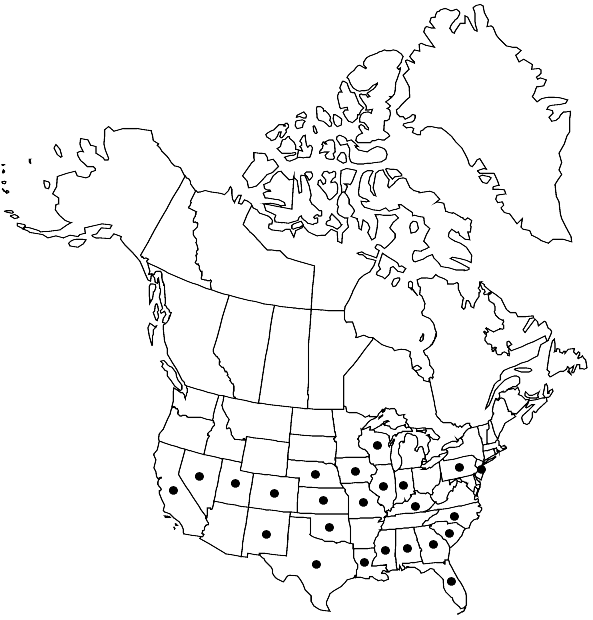Difference between revisions of "Tortula plinthobia"
in H. G. A. Engler and K. Prantl, Nat. Pfanzenfam. 214[I,3]: 430. 1902,.
FNA>Volume Importer |
FNA>Volume Importer |
||
| Line 9: | Line 9: | ||
|name=Desmatodon plinthobius | |name=Desmatodon plinthobius | ||
|authority=Sullivant & Lesquereux | |authority=Sullivant & Lesquereux | ||
| + | |rank=species | ||
|publication_title=in A. Gray, Manual ed. | |publication_title=in A. Gray, Manual ed. | ||
|publication_place=2, 628. 1856 | |publication_place=2, 628. 1856 | ||
| Line 36: | Line 37: | ||
-->{{#Taxon: | -->{{#Taxon: | ||
name=Tortula plinthobia | name=Tortula plinthobia | ||
| − | |||
|authority=(Sullivant & Lesquereux) Brotherus in H. G. A. Engler and K. Prantl | |authority=(Sullivant & Lesquereux) Brotherus in H. G. A. Engler and K. Prantl | ||
|rank=species | |rank=species | ||
| Line 51: | Line 51: | ||
|publication year= | |publication year= | ||
|special status= | |special status= | ||
| − | |source xml=https://jpend@bitbucket.org/aafc-mbb/fna-data-curation.git/src/ | + | |source xml=https://jpend@bitbucket.org/aafc-mbb/fna-data-curation.git/src/f50eec43f223ca0e34566be0b046453a0960e173/coarse_grained_fna_xml/V27/V27_852.xml |
|subfamily=Pottiaceae subfam. Pottioideae | |subfamily=Pottiaceae subfam. Pottioideae | ||
|genus=Tortula | |genus=Tortula | ||
Revision as of 22:05, 16 December 2019
Leaves ovate to long-ovate, occasionally ovate-lanceolate, apex broadly acute to rounded, short- to long-awned, margins recurved or revolute in distal 4/5 to apex or nearly so, not bordered; costa short- to long-excurrent, lacking an adaxial pad of cells, distally narrow, 4(–6) cells across the convex adaxial surface; distal laminal cells hexagonal, 10–13 µm wide, 1:1, strongly papillose with 2-fid papillae. Sexual condition apparently dioicous but probably monoicous, uncommonly clearly autoicous. Sporophytes exerted. Seta 0.6–1 cm. Capsule stegocarpic, cylindric, erect and nearly straight, urn length ca. 2 mm; peristome often dehiscent with the operculum, ca. 120–200 µm, teeth of 16 flattened, irregular, oblong segments, weakly twisted, variously divided into 2 branches, basal membrane absent but teeth cohering basally, or present and low; operculum 0.5–1 mm. Spores 8–10 µm, spheric, finely papillose or essentially smooth.
Phenology: Capsules mature spring.
Habitat: Calcareous rocks, sedimentary outcrops, concrete, mortar, pavements, walls
Elevation: low to moderate elevations
Distribution

Ala., Calif., Colo., Fla., Ga., Ill., Ind., Iowa, Kans., Ky., La., Miss., Mo., Nebr., Nev., N.J., N.Mex., N.C., Okla., Pa., S.C., Tex., Utah, Wis.
Discussion
The degenerate peristome is the major distinguishing trait of Tortula plinthobia, which is widespread but endemic to the flora area. It is doubtfully distinct from T. muralis at the species level, and the similar gametophyte coupled with the flattened, weakly twisted 16 teeth, each divided into 2 branches, indicates that this peristome type, also associated with the old genus Desmatodon, is not in itself a trait implying taxonomic distinction at the genus level.
Selected References
None.